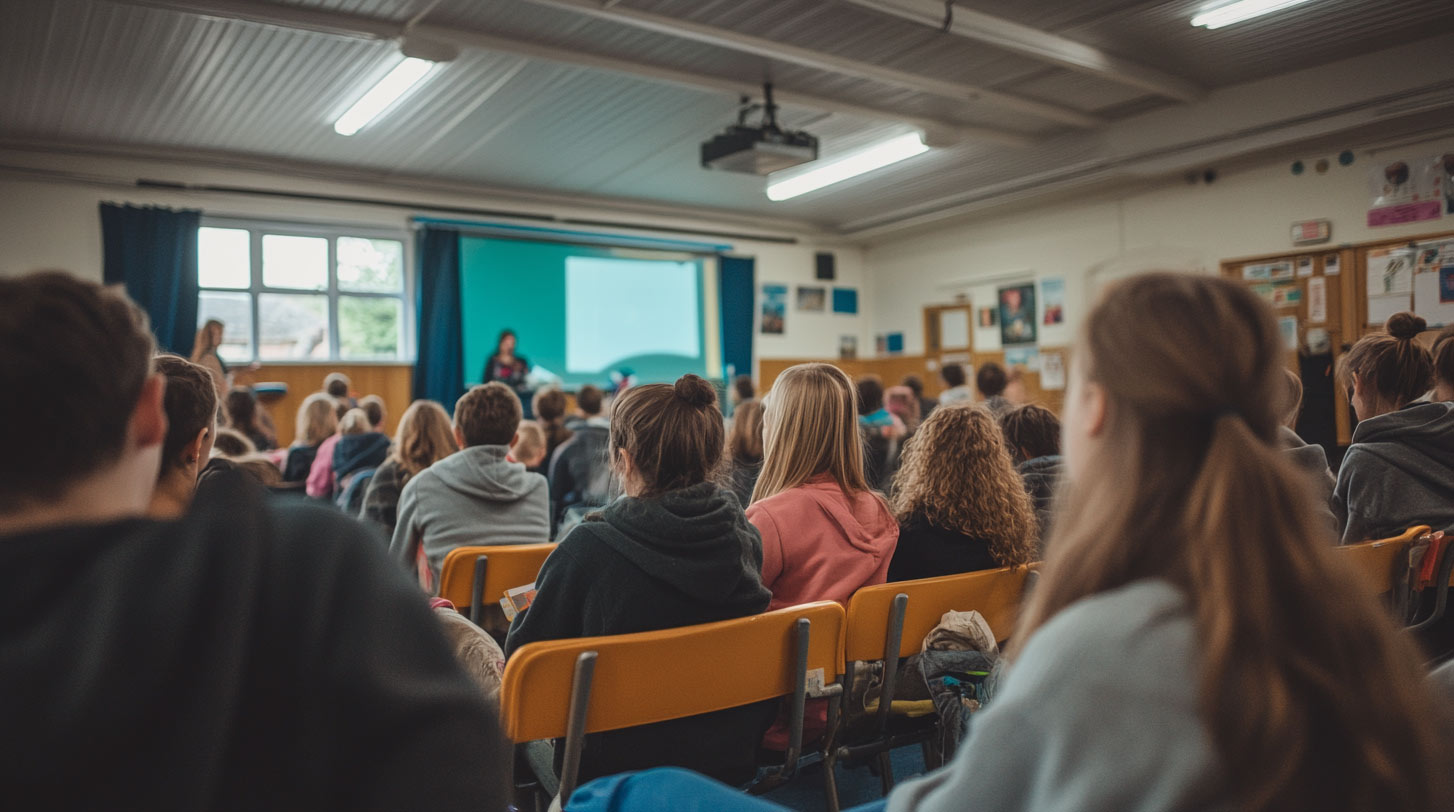Social skill development in the classroom is a multifaceted and crucial aspect of a child’s overall education. Unlike academic skills, social skills are less tangible and involve navigating complex interpersonal dynamics, including communication, empathy, and cooperation. The classroom, as a microcosm of broader society, presents a rich but challenging environment where students must learn to interact effectively with peers and teachers.
Teachers play a pivotal role in fostering these skills, but recognising the nuances of social skill development can be challenging. Students may exhibit a wide range of social behaviours, from confident communication and team collaboration to difficulties in making friends or understanding social cues. Teachers should be vigilant in observing how students engage with others, respond to group dynamics, and handle conflicts. Identifying signs of social struggle, such as withdrawal, aggression, or difficulties with turn-taking, is essential. By understanding these complexities, teachers can implement targeted strategies to support and enhance social skill development, creating a more inclusive and supportive learning environment for all students.
ADHD Social Development In The Classroom
A teacher can effectively introduce social skill development at subtle, medium, and advanced levels. Let’s look at some tips and guidance to help you get ready for your next planning scenario.
Subtle Level: Building Basic Social Interactions
At a subtle level, teachers can incorporate social skill development into everyday classroom activities without drawing explicit attention to it. This approach involves integrating basic social interactions into routine classroom practices. For example, teachers can model and reinforce polite greetings, active listening, and sharing during group work or partner activities. Tips for this level include encouraging students to practice turn-taking during discussions, praising positive social interactions like offering help or expressing appreciation, and setting up activities that require students to work collaboratively. By embedding these social skills into daily routines, students naturally develop and reinforce essential social behaviours in a low-pressure environment.
Medium Level: Structured Social Skill Activities
At a medium level, teachers can introduce more structured activities specifically designed to teach and practice social skills. This can involve targeted lessons or activities focused on specific skills such as conflict resolution, empathy, or effective communication. For instance, role-playing scenarios or social stories can help students practice how to handle various social situations. Tips for this level include creating a safe space for students to express themselves, using guided practice with clear instructions, and providing constructive feedback. Additionally, teachers can incorporate social skill objectives into lesson plans and use small group activities to ensure students receive personalised attention and support.
Advanced Level: Integrating Social Skills Across the Curriculum
At an advanced level, teachers can integrate social skill development into all aspects of the curriculum and classroom management. This approach involves creating an environment where social skills are consistently practiced and reinforced in diverse contexts. For example, teachers can embed social skills objectives into project-based learning, group assignments, and peer assessments. Tips for this level include setting specific social goals for students and tracking their progress over time, using peer feedback to enhance social interactions, and fostering a classroom culture that values collaboration and respect. Teachers can also involve students in self-assessment and reflection activities to help them understand and improve their social skills actively.
These approaches help ensure that social skill development is tailored to the needs and abilities of students, providing them with the support and practice they need to thrive in both academic and social settings.

ADHD Under the Magnifying Glass
Students with ADHD may experience a heightened state of reality when asked to present, participate, or share their thoughts in front of the class, which can be particularly overwhelming and induce significant anxiety. This heightened sensitivity often stems from difficulties with attention regulation, impulsivity, and heightened self-awareness, making public speaking or class participation feel like a high-stakes situation. For instance, the pressure of being the centre of attention can exacerbate feelings of insecurity and fear of making mistakes, leading to physical symptoms of anxiety such as sweating, trembling, or a racing heartbeat. Teachers can recognise these signs by observing students who appear visibly distressed, avoid eye contact, or exhibit avoidance behaviours, such as fidgeting or reluctance to engage. To ease this process, teachers can implement several strategies: provide opportunities for students to practice in smaller, less intimidating settings before presenting to the entire class, offer positive reinforcement and encouragement to build confidence, and allow for alternative methods of participation, such as written responses or small group discussions. Creating a supportive and understanding classroom environment helps mitigate anxiety and empowers students with ADHD to engage more comfortably and effectively.
Supporting ADHD Children in Social Settings by Age Group
Below is a table that outlines how teachers can support children with ADHD in social settings based on their age group, according to the UK year system:
| Age Group (UK Year) | Description |
|---|---|
| Early Years (Reception – Year 1) | At this stage, children with ADHD benefit from structured routines and clear expectations. Teachers can help by using visual aids and social stories to model appropriate behaviours. Simple, engaging activities that promote sharing and turn-taking can encourage social skills development. Frequent positive reinforcement and praise can also support their growing social confidence. |
| Key Stage 1 (Years 2 – 3) | Children in this age group can be supported by implementing small group activities and role-playing scenarios to practice social interactions. Teachers should provide clear, step-by-step instructions and break tasks into manageable parts. Encouraging collaborative learning and peer support can help children with ADHD develop social skills in a structured environment. Offering consistent feedback and setting achievable goals are also beneficial. |
| Key Stage 2 (Years 4 – 6) | As children get older, teachers can focus on more complex social skills, such as conflict resolution and empathy. Group projects and peer mentoring can be effective in providing practical social experiences. Teachers should foster an inclusive classroom atmosphere and provide opportunities for leadership roles within group work. Encouraging self-reflection and personal goal-setting helps students with ADHD understand and manage their social interactions better. |
| Key Stage 3 (Years 7 – 9) | In Key Stage 3, students with ADHD are developing a greater awareness of social dynamics. Teachers can support them by facilitating social skills workshops and providing strategies for managing anxiety in social situations. Encouraging involvement in extracurricular activities and peer groups can build social confidence. Teachers should be mindful of individual triggers and offer personalised support, such as flexible participation options and check-ins. |
| Key Stage 4 (Years 10 – 11) | At this stage, students are preparing for more independent social interactions and future transitions. Teachers can assist by promoting self-advocacy skills and helping students develop coping strategies for social stress. Providing opportunities for leadership and responsibility within school projects can enhance social skills. It’s also important to offer guidance on managing social relationships and planning for post-school life. |
| Key Stage 5 (Years 12 – 13) | In Key Stage 5, students with ADHD are navigating complex social environments and making critical decisions about their future. Teachers should focus on supporting career planning and social independence. Offering mentorship programs and facilitating access to support services can be beneficial. Encouraging self-management techniques and providing opportunities for real-world social experiences can help students prepare for adult life. |
Advanced Social Skills For Pupils With ADHD
As students with ADHD progress through their education, advanced social help and engagement become increasingly critical. At this stage, children are not only refining their social skills but also navigating more complex social environments. The heightened state of stimuli, such as peer interactions, academic pressures, and extracurricular activities, can overwhelm students with ADHD, leading to difficulties in managing emotions and social responses. Advanced social help focuses on equipping these students with strategies to handle this complexity and maintain control over their reactions.
Therapy with a specialist in ADHD can play a crucial role in this advanced phase of social development. ADHD specialists, such as clinical psychologists or behavior therapists, are trained to address the unique challenges associated with ADHD, including the heightened sensitivity to stimuli that many students experience. These professionals employ targeted therapeutic approaches to help students develop coping mechanisms and enhance their social skills. For instance, Cognitive Behavioural Therapy (CBT) can assist students in understanding and managing their emotional responses to social situations, reducing impulsivity, and improving self-regulation.

In addition to CBT, specialised therapy often includes social skills training, where students practice specific interactions and scenarios in a controlled setting. This training helps them develop practical skills for managing peer relationships, handling social conflicts, and navigating complex social dynamics. Techniques such as role-playing and structured feedback provide students with opportunities to rehearse and refine their social responses, gradually building their confidence and competence.
Overall, therapy from an ADHD specialist offers a tailored approach to addressing the heightened state of stimuli that can impact social interactions. By focusing on both cognitive and behavioral strategies, these professionals help students gain greater control over their social experiences, ultimately enhancing their ability to engage successfully and confidently in diverse social settings.